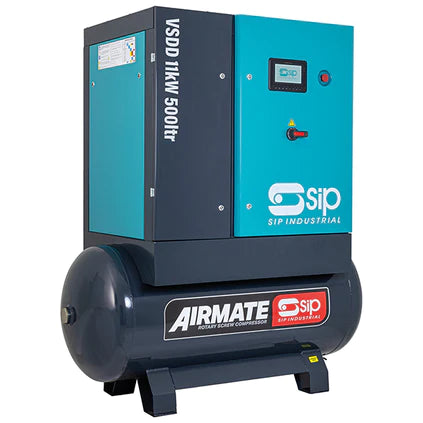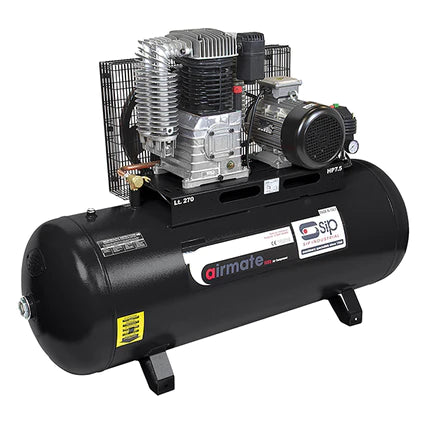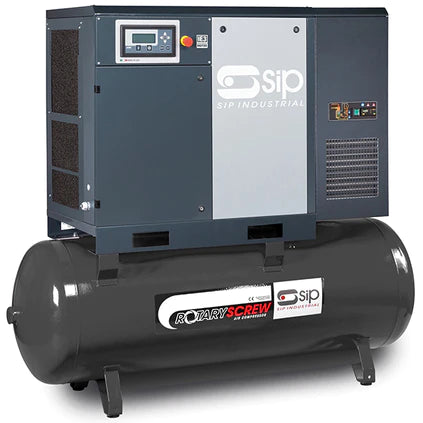
Can Air Compressors Overheat? Risks & Prevention
Welcome to our guide on air compressor overheating. If you own or operate an air compressor, you may be wondering, "Can air compressors overheat?" The answer is yes. Just like any other piece of machinery, air compressors can experience overheating issues that can lead to performance problems or even damage. In this article, we will explore the risks associated with air compressor overheating and provide practical tips to prevent it, ensuring the safe and efficient operation of your equipment.

Key Takeaways:
- Air compressors can overheat, which can lead to performance issues and potential damage.
- Understanding the causes and signs of overheating is crucial for preventing issues.
- Regular maintenance and monitoring can help ensure the safe and efficient operation of your air compressor.
- Cooling tips and preventive measures can help minimize the risk of overheating and prolong the lifespan of your compressor.
- By following the provided tips, you can avoid costly repairs or replacements and keep your air compressor in optimal condition.
Signs of Air Compressor Overheating and Prevention Tips
When it comes to air compressors, overheating can be a serious issue that affects both performance and safety. To keep your compressor running smoothly and avoid costly repairs, it's important to be aware of the signs of overheating and take preventive measures. In this section, we will discuss the common signs that indicate an air compressor is overheating and provide you with effective tips to prevent these issues from occurring.

Signs of Air Compressor Overheating
- Excessive Noise: If your air compressor is making unusual or louder-than-usual noises during operation, it could be a sign of overheating. Pay attention to any grinding, rattling, or squealing sounds.
- Hot Exterior: Touch the exterior of your compressor. If it feels excessively hot to the touch, it may indicate that the internal components are overheating.
- Tripped Breaker: If the circuit breaker connected to your air compressor frequently trips, it could be a sign of overheating. Check the breaker and investigate the cause.
- Decreased Performance: Noticeable drops in air pressure or reduced efficiency of your compressor can suggest that it is overheating. If it takes longer to reach desired pressure levels or struggles to maintain consistent output, overheating may be the cause.
Prevention Tips to Avoid Air Compressor Overheating
To ensure the longevity and optimal performance of your air compressor, here are some preventive measures to avoid overheating:
- Proper Ventilation: Provide adequate airflow around your compressor by keeping it in a well-ventilated area. Ensure there are no obstructions that restrict the flow of air.
- Regular Maintenance: Follow the manufacturer's recommended maintenance schedule, which may include tasks such as cleaning or replacing filters, checking oil levels, and inspecting belts and hoses.
- Monitor Temperature: Invest in a temperature monitoring device or install a built-in thermal control system to keep track of your compressor's temperature. This allows you to detect overheating early and take necessary action.
- Proper Lubrication: Ensure that your compressor is properly lubricated with the recommended oil for its specific model. Insufficient lubrication can contribute to overheating.
- Avoid Overworking: Do not exceed your compressor's recommended duty cycle. Give it time to rest and cool down between usages. If you have heavy or prolonged tasks, consider using a compressor with a higher capacity.
By being aware of the signs of air compressor overheating and implementing these preventive measures, you can avoid potential breakdowns, extend the lifespan of your compressor, and keep it operating safely and efficiently.

Conclusion
In conclusion, proper understanding of the risks associated with air compressor overheating and the implementation of preventive measures are essential for ensuring the safe and efficient operation of your equipment. By following these air compressor cooling tips, you can maintain your air compressor in optimal condition and minimize the risk of expensive repairs or replacements. Remember to regularly maintain and monitor your compressor to ensure its longevity and performance.

